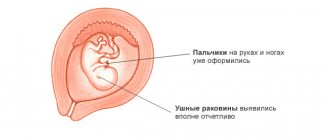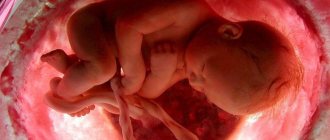Why does my head hurt and what to do about it
Expecting a child is a joyful and exciting period for a woman, but at the same time as the birth of a new life, health problems may appear. Many expectant mothers suffer from headaches during pregnancy, and cephalalgia often becomes chronic and pronounced. The main causes of attacks are:
- Changes in hormonal levels necessary for the preservation and gestation of the fetus. Since the autonomic nervous system, controlled by hormones, is responsible for vascular tone, their imbalance leads to spasms or hypotension.
- Deficiency of macro- and microelements in a woman’s body. All nutrients are needed by pregnant women in increased quantities. Therefore, if you do not adjust your diet in time and do not take vitamin complexes, after a while the deficiency will become obvious. For example, with a lack of iron, anemia develops, the supply of oxygen to the brain tissue deteriorates and a headache begins.
- Stress, fatigue, and sleep disturbances, which often accompany pregnancy, cause various cerebrovascular disorders.
- Colds and chronic diseases.
At the same time, it is not advisable to take pills for headaches during pregnancy, especially in the early stages - in the first trimester. If painful attacks occur sporadically and do not differ in intensity, it is recommended to simply rest, drink hot sweet tea, and relax.
In cases where the pain is frequent and severe, you should consult a doctor. The specialist will recommend the safest possible medication treatment, and it is unacceptable to take any medications on your own.
Causes of headaches in pregnant women
From the very first weeks of pregnancy, an ailment such as a headache can plague absolutely any woman, because there are many reasons for the appearance of this problem. Let's look at the most common of them:
- Hormones. More precisely, it is not the hormones themselves that cause pain, but changes in hormonal levels during pregnancy. The body can react sharply to strong hormonal surges in the form of a deterioration in overall health and the appearance of such an unpleasant illness as a headache.
- Overwork, stress. Most representatives of the fair sex spend the first trimester at work, because maternity leave begins only at 30 weeks. From the very first weeks of pregnancy, women begin to get tired much faster, worry much more often, and as a result, such an unpleasant illness arises. This can also include eye strain if a pregnant woman’s work involves spending a long time in front of a computer monitor.
- Low pressure. This phenomenon usually accompanies another common illness among pregnant women - early toxicosis.
- High pressure. This problem is more common in the later stages, with late toxicosis, but even in the first trimester no one is immune from increased blood pressure.
- Dehydration, hunger. If a pregnant woman has a headache and skips a meal, the reason is quite obvious. A pregnant woman should eat regularly and drink enough fluids.
- Nutritional factors. In addition to the fact that a pregnant woman should eat regularly, her diet must include natural products. Fast food, spicy dishes, sweet, salty, flour, canned food - all this and much more can cause such an unpleasant illness as a headache. Therefore, while carrying a baby, it is better to adhere to proper nutrition from the first weeks.
- Allergic reactions. In the early stages, the body undergoes various changes. Allergies to foods, cosmetics or perfumes can easily develop, even if there were no allergies before pregnancy. Therefore, if you have a headache and signs of an allergy appear, then the problem is most likely an allergy.
- Overweight. This reason is quite rare, because in the first trimester the weight not only does not increase, it can even decrease, for example, against the background of toxicosis.
- Physical irritants. These include bright light, sharp sound, noise, flickering light. Any external physical irritation can negatively affect the condition of a pregnant woman.
- Weather change. Many people are very sensitive to environmental changes, and during pregnancy this sensitivity is even more intense. Therefore, if you have a headache and the weather outside is deteriorating, you will have to wait out this unpleasant period, preferably without taking medications.
- Diseases. A headache that occurs precisely for this reason is always accompanied by any accompanying symptoms. And from these symptoms it is already possible to determine which disease provoked the appearance of this unpleasant illness.
In any case, no matter what the reason for the headache, it cannot be tolerated. You should definitely consult a doctor who will prescribe the necessary treatment.
The effect of headache pills on the fetus
Why is it strictly forbidden for pregnant women to use painkillers without a doctor’s recommendation? Once in the mother's blood, the active substances reach the fetus, especially in the early stages, when there is no placental barrier. During this same period, the child’s body is forming, so medications can cause severe anomalies in the structure of organs, delayed physical development, and antenatal (intrauterine) death.
In the second trimester, when the placenta is already formed and performs protective functions, pregnant women are allowed to take some previously prohibited drugs for headache attacks. This period is considered the safest from the point of view of embryotoxicity, but the risk of retardation in physical development, spontaneous abortion, and intrauterine death cannot be excluded. Therefore, here you also need to be careful and always consult a gynecologist.
In the third trimester, restrictions increase again. Antispasmodics one and a half months before the PDR (35-40th week) are contraindicated, as they can lead to post-maturity, and vasoconstrictor drugs can cause premature birth. In addition, the third trimester is often accompanied by gestosis with increased blood pressure, and many headache medications have a hypertensive effect.
Headache in early pregnancy: is there a danger for the baby?
This question interests every expectant mother who is faced with this disease. And such worries about the baby are completely justified - every change in the pregnant woman’s body affects the condition of the fetus. But headaches as such cannot harm the baby in the womb. Only diseases that cause headaches in a pregnant woman can have an impact on the child’s health.
If a pregnant woman has a headache before 12 weeks, she should urgently consult a doctor so that he can help find out the cause and prescribe the necessary treatment. Indeed, in the early stages, the appearance of any serious diseases can affect the baby’s health, even leading to the appearance of severe developmental defects. Of course, it is not the headache itself that can have this effect, but only severe infectious diseases.
In addition to diseases, the mother herself can cause harm to the child by using painkillers that negatively affect the health of the fetus. Therefore, treatment must be prescribed by a doctor, in the form of approved medications. It is strictly forbidden to use Analgin (not even recommended for men, let alone pregnant women), caffeine, reserpine and other serious drugs.
Vitamin complexes
In some cases, headaches may be caused by a lack of essential vitamins and minerals. Therefore, to support the health and mood of expectant mothers, doctors often prescribe vitamin complexes.
We recommend taking a natural Prenatal Daily Nutrition vitamin complex, which is made from 100% organic raw materials. However, be careful, as individual intolerance to some components of the complex is possible. Consult your doctor regarding the composition. Start with one or half a tablet to test for an allergic reaction. You can buy Prenatal Daily Nutrition using this link.
Prevention of headaches in pregnant women
To prevent headaches from tormenting the expectant mother, she should:
- sleep at least 8 hours a day;
- eat often - 5-6 times a day - but in small portions;
- include vegetables and fruits rich in vitamins and minerals in your diet; they also contain carbohydrates, which are properly absorbed and help avoid hypoglycemia;
Fruits are rich in vitamins and healthy sugars necessary for pregnant women
- give up fast food and other “chemical” foods; limit intake of foods that cause headaches;
- walk more in the fresh air, do gymnastics, go to the pool, but do not subject the body to heavy physical activity;
- limit “communication” with the computer;
- try not to be nervous, avoid stress.
List of approved drugs
Medicines that you can take for a headache attack during pregnancy belong to three main groups:
- Non-narcotic analgesics. This includes medications of varying degrees of effectiveness, but pregnant women can only take Paracetamol without fear.
- Non-steroidal anti-inflammatory drugs. They have a pronounced analgesic effect and eliminate inflammation as the cause of pain. Ibuprofen is the safest for the fetus, but only in the 1st and 2nd trimesters, and in the later stages it is prohibited to use it.
- Antispasmodics. Spasms of cerebral vessels are the most common cause of cephalgia, therefore the drugs No-shpa, Drotaverine, Papaverine are on the list of the most popular. However, there are also restrictions for expectant mothers.
There is another group of tablets for headaches, but they are strictly contraindicated for pregnant women. We are talking about vasoconstrictors that are used for hypotension. Taking them during pregnancy can result in miscarriage or premature birth due to stimulation of contractile activity of the uterine muscles. Among other painkillers, only a few of the safest drugs are allowed to be used.
What pills should you not take?
Among the painkillers that effectively relieve attacks of cephalgia, there are several medications that are strictly prohibited from being taken for headaches during pregnancy at any stage. These include:
- Aspirin, also known as acetylsalicylic acid. Its teratogenic effect has been clinically proven: if you take the pills in the first trimester, the formation of the upper palate (“cleft palate”) is disrupted, and the use of aspirin in the later stages inhibits labor and the closure of the ductus arteriosus in the fetus.
- Analgin or metamizole sodium. Causes congenital defects of the heart, blood vessels, and kidneys when used in the first three months; shortly before birth it is contraindicated for the same reasons as acetylsalicylic acid.
- Vasoconstrictor drugs (Ergotamine and others). They increase the tone of smooth muscles, which also make up the walls of the uterus. Accordingly, in the early stages the risk of miscarriage increases, and in the later stages - premature birth.
Pregnant women should take other medications for headaches with caution. Even relatively safe drugs can cause individual negative reactions and adversely affect the condition of the fetus.










